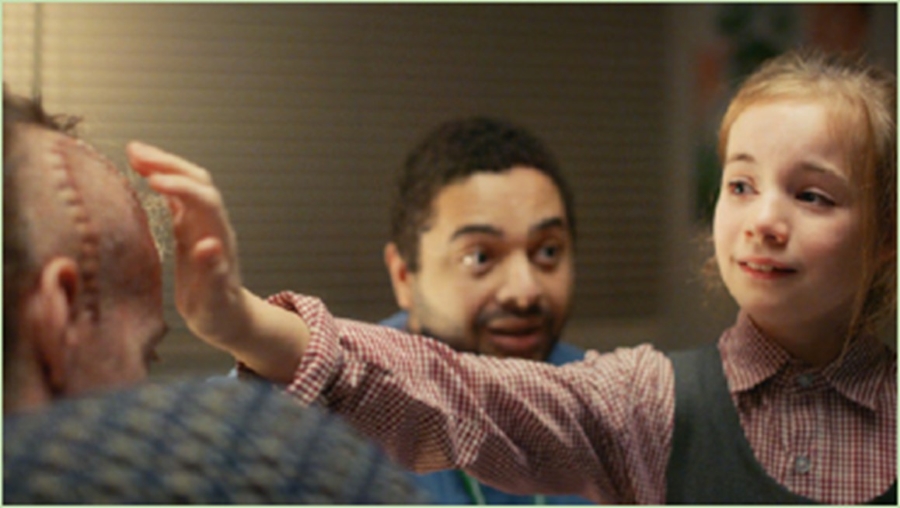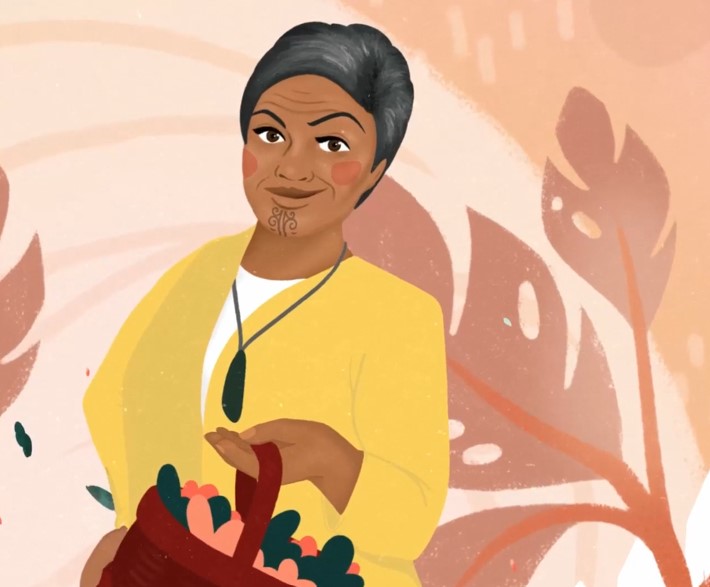Ahead of World Cancer Day on February 4, WARC’s Genevieve Silk looks at campaigns that have committed to combatting cancer.
Who among us can raise their hand and say that none of their family or friends has been touched by cancer? My guess is that those people are few and far between.
Cancer is the second leading cause of death worldwide (after cardiovascular disease) and accounted for nearly one in six deaths globally in 2020. This horrifying figure is only set to rise as we continue to live longer, with scientists estimating that cancer diagnoses will increase by 62% by 2040. However, many types of cancer can be easily cured when found early and treated effectively, making it imperative that people young and old from around the world know their enemy and how to detect it. February 4 is World Cancer Day – a date devoted to raising awareness of cancer and encouraging its prevention, detection and treatment. Here we look at six brands from around the world that have dedicated their campaigns to beating cancer.
Wordlessly spurring donations
Cancer does not care if you are old or young; it doesn’t discriminate based on gender, skin colour, or sexual orientation. The charity Macmillan Cancer Support heart-renderingly captured the universality of the disease and called on the public to donate with its wordless tear-jerker film Whatever It Takes, which took home a Silver Lion from the Cannes 2021 festival.
When COVID-19 hit, Macmillan’s services were more vital than ever as the disruption of the pandemic meant that up to 100,000 people in the UK were at risk of a late cancer diagnosis and consequent lower chances of survival, yet the charity’s resources were running perilously low. Macmillan needed to act fast. It sought to turn the brand into a powerful vehicle to mobilise people into action and its TVC, by AMV BBDO London, raised over £17,000 while Macmillan saw increased engagement with all its support services. Whatever It Takes, as part of Macmillan’s We Stand For Betterness campaign, was Highly Commended at The Marketing Society Awards in 2021.

Tugging on heart strings with radio
Whereas Macmillan made eyes glisten through its use of film, The Swedish Childhood Cancer Foundation did it with sound. In just 40 seconds a radio spot broke hearts across Sweden and sparked 43% of listeners to donate. In a unique collaboration with Disney, Universal, the Foundation used the well-known song Do You Want To Build A Snowman? to tell the true story of August who was diagnosed with leukaemia aged six; the first symptom of the disease was that he no longer had the energy to play with his friends. The Christmas campaign, by Garbergs Stockholm, was given the highest possible rating by 61% of listeners and raised nearly US$2.4m.
Tackling colorectal cancer among Black Americans
While cancer does not discriminate in who it targets, healthcare communications often do, resulting in the much under-publicised fact that Black Americans are 40% more likely to die from colorectal cancer than white Americans, despite the disease having a 90% survival rate if detected and treated early. Toilet paper brand Cottonelle tackled racial inequality in healthcare with its #GoodDownThere campaign by Ketchum, through which the brand provided free, at-home, colorectal screenings and free colonoscopies for Black patients in need, as well as hosting events and partnering with influencers to raise awareness. Within weeks, 5,000 screening tests had been distributed and, in the first three months, the programme had positively impacted more than 50,000 people in the Black community, with awareness of colorectal cancer increasing to 41%.
Embracing traditional Maori storytelling to guide women to mammograms
The Breast Cancer Foundation, New Zealand, also responded to the fact that social factors can mean that certain ethnic groups are disproportionately affected by cancer. In this case, the country’s indigenous Maori women were 10% less likely to book a breast screening, despite being 72% more likely to die from breast cancer than their non-Maori counterparts. Many Maori women are more focused on their family’s wellbeing than their own which led the Breast Cancer Foundation to turn to the only people Maori women truly listen to: their grandchildren – or mokopuna.
The organisation used traditional Maori storytelling but flipped the script of the classic narrative with its campaign Mokopuna Mythologies – a series of animated films and radio spots in English and Maori that used children’s voices to guide their mothers and grandmothers to breast screenings. Mokopuna Mythologies narrowed the mammogram gap between Maori and non-Maori women, with the 10% figure dropping to 7%, meaning an addition 4,770 women booked a screening.

Breaking through cultural taboos with bread
The Lebanese Breast Cancer Foundation also looked to local traditions to give women in Lebanon a tool with which to discuss a topic that is strictly taboo: breasts. Although up to 98% of breast cancer cases can be cured if they’re detected early enough, breast cancer is the second biggest cause of death among Lebanese women, as Lebanese culture frowns upon them openly discussing their bodies. Although Lebanese women shy away from talking about breast self-examinations, they love discussing recipes. It was this discovery that provided a doorway into Lebanese homes – specifically into their kitchens.
The Foundation’s campaign The Bread Exam taught women how to check themselves for breast cancer through the act of kneading and pressing a ball of dough. The campaign, through McCann Paris, reached 112 million people globally, increased awareness around conducting a breast self-exam by 83% and was awarded the Grand Prix for Good in the WARC Awards for Effectiveness 2022.

Reframing masculinity as responsibility
Women are not the only ones at greater risk of cancer due to cultural taboos in the Middle East. Al Arabia Outdoor Advertising discovered that cases of prostate cancer in Saudi Arabia have been steadily increasing in recent years due to men’s reluctance to undergo a rectal examination – something they perceived as both inherently revolting and emasculating. Armed with the insight that ‘manliness’ in Saudi Arabia is not only dependent on muscles and moustaches but also on being perceived as responsible, Al Arabia reframed getting tested as an important act of responsibility. The campaign Be A Man, through McCann Riyadh, called on men to demonstrate their responsibility towards their family and their health. In addition to garnering over 14 million views on social media, Be A Man sparked a 120% increase in voluntary prostate cancer screening.

Hope for the future
Despite increasing numbers of people being diagnosed with cancer today than ever before, we also live in a time of improved healthcare and increased chances of recovery. Around the world cancer death rates are falling, with the mortality rate dropping by 32% between 1991 and 2019 in the USA. The most important factor for determining the chances of survival is early detection and that is precisely where campaigns like these are most important.

